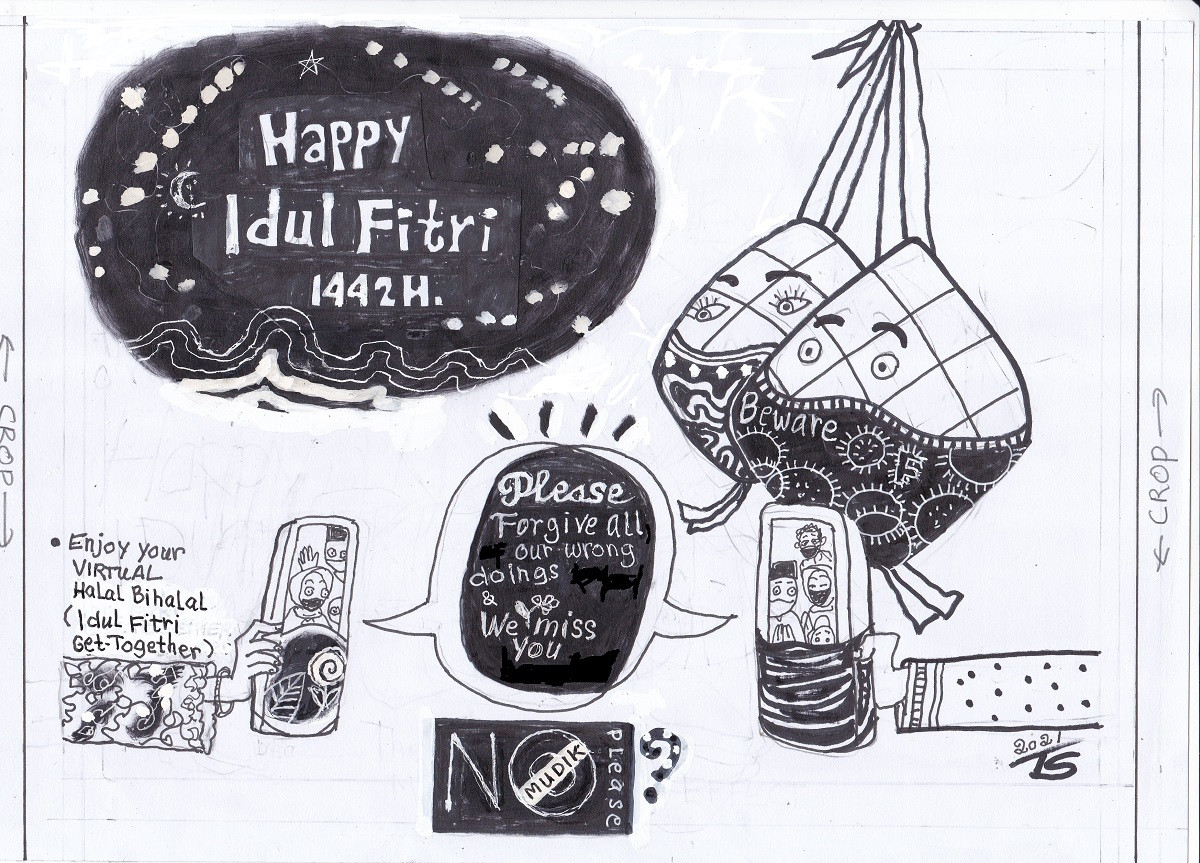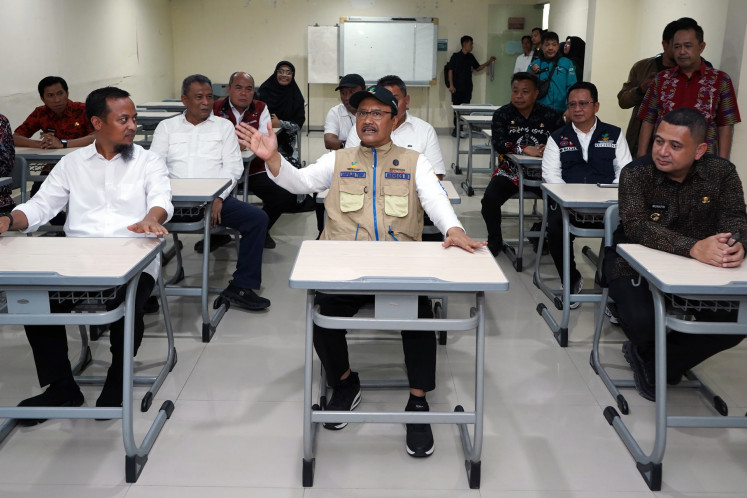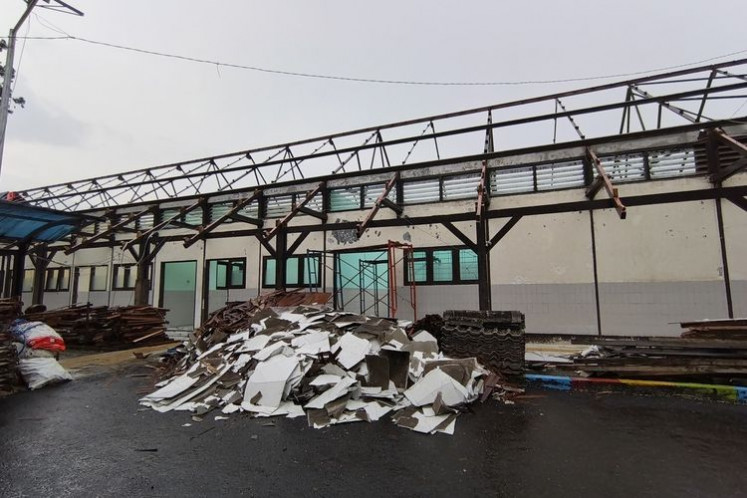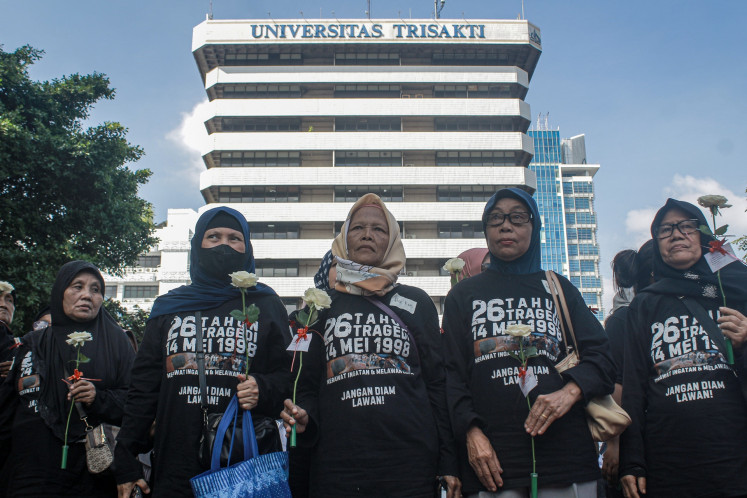A different way of celebrating Idul Fitri
Perhaps the most painful adjustment is the ban on mudik, a decades-old ritual that used to prelude Idul Fitri.
Change text size
Gift Premium Articles
to Anyone

M
uslims worldwide will soon celebrate Idul Fitri, which marks an end to the holy month of Ramadan. The holiday is a much-awaited moment to express gratitude to God for finishing the month-long fasting.
Ramadan is the month for Muslims to spiritually reshape themselves into the best kind of human beings. Idul Fitri, therefore, is the day of victory for Muslims for being able to fight worldly desires by prioritizing worship to God and performing good deeds toward other human beings. As a reward, God offers grace and mercy.
But the COVID-19 pandemic still drags on for the second year running. From time to time, we have been shocked by the unexpected news of the passing of people around us, our colleagues, friends, even loved ones. Our WhatsApp groups were often full of condolences.
Due to the constant danger of COVID-19 transmission, the government has asked the people to thoroughly follow health protocols. Most recently, the government restricted breaking-of- the-fast gatherings involving crowds, banned mudik (exodus) and prohibited state officials from hosting post-Ramadan open houses.
Most offices, schools and universities have remained closed. Most people work and study from home with the help of information technology, prompting those without access to technology to suffer more. Worse still, we have been witnessing businesses collapse and people lose jobs.
Perhaps the most painful adjustment is the ban on mudik, a decades-old ritual that used to prelude Idul Fitri. Before the pandemic, millions of people left cities for their hometowns and villages in order to celebrate Idul Fitri with their big families
The ban is nevertheless a must to reduce the spread of the virus, which has reportedly mutated into a more deadly form. The cases of other countries such is in India show that the pandemic is far from over.
What can we learn from this difficult situation?
First, hifz al-nafs (protection of life) must be taken as a foremost consideration. While the government does not forbid Eid prayer in an open field, health protocols must be strictly followed and the mudik ban must be followed. That means we cannot perform Eid prayer in our hometown, but in the neighborhood we currently reside. But if our neighborhood is classified as a red zone or high-risk, then performing Eid prayer at home should be an option.
This should not reduce the sacred meaning of Idul Fitri celebration, as the holiday does not need to be celebrated in a festive mood, rather in a contemplative one. Thus the pandemic once again provides us with a chance to really go deeper into the meaning of Idul Fitri. We can solemnly ask ourselves: have we successfully reshaped ourselves into the best version of human beings?
Second, it is time to reinterpret and widen the definition of the needy. Ramadan has taught us to perform good deeds particularly toward the needy. During this pandemic, we have witnessed how stressed those infected by the virus were. Having to self-isolate at home or at a hospital with the possibility of death is certainly not a comfortable state. Helping to comfort them in any way such as providing food or logistical matters or taking care of their family members are good deeds that God would reward.
We can start by taking care of our neighbors who might have contracted the coronavirus. Community-based programs have become an important strategy to enhance health and safety and can serve as preemptive measure before we resort to professional ones. It is common now to have COVID-19 task force in our neighborhoods through which we can act and help together. Prophet Muhammad (PBUH) said: “The best neighbor to Allah is the best to his neighbor” (HR Tirmidhi). The Quran makes it clear that neighbors are entitled to kindness, whether they are related to us or not (An Nisaa:36).
Third, the government is no doubt in a difficult situation financially. The country plunged into its first recession in two decades in the third quarter of 2020 as the government struggled to contain the coronavirus outbreak and the attendant economic fallout. While Indonesia’s economic growth is expected to modestly rebound this year, credit growth to Indonesian firms remains weak and the pandemic will continue to seriously dampen economic activities.
Thus, as the economy prospect remains gloomy, we have no option but to really tighten our belt. Consumption might help giving a boost to the economy, but every household has no option but to perform this in a calculated and modest manner.
Idul Fitri celebrations this year may not be extravagant and don’t need to be in the future anyway. Nevertheless, it still provides us with a meaningful chance to spiritually reshape ourselves into at least better individuals, who have more sensitivity to help those really in need and to increase our resilience in dealing with the pandemic.
Eid Mubarak.
***
The writer is secretary of Primary and Secondary Education Council of the Central Board of Muhammadiyah and vice chairperson of Commission on Foreign Relations and International Cooperation of Indonesia Ulema Council.









